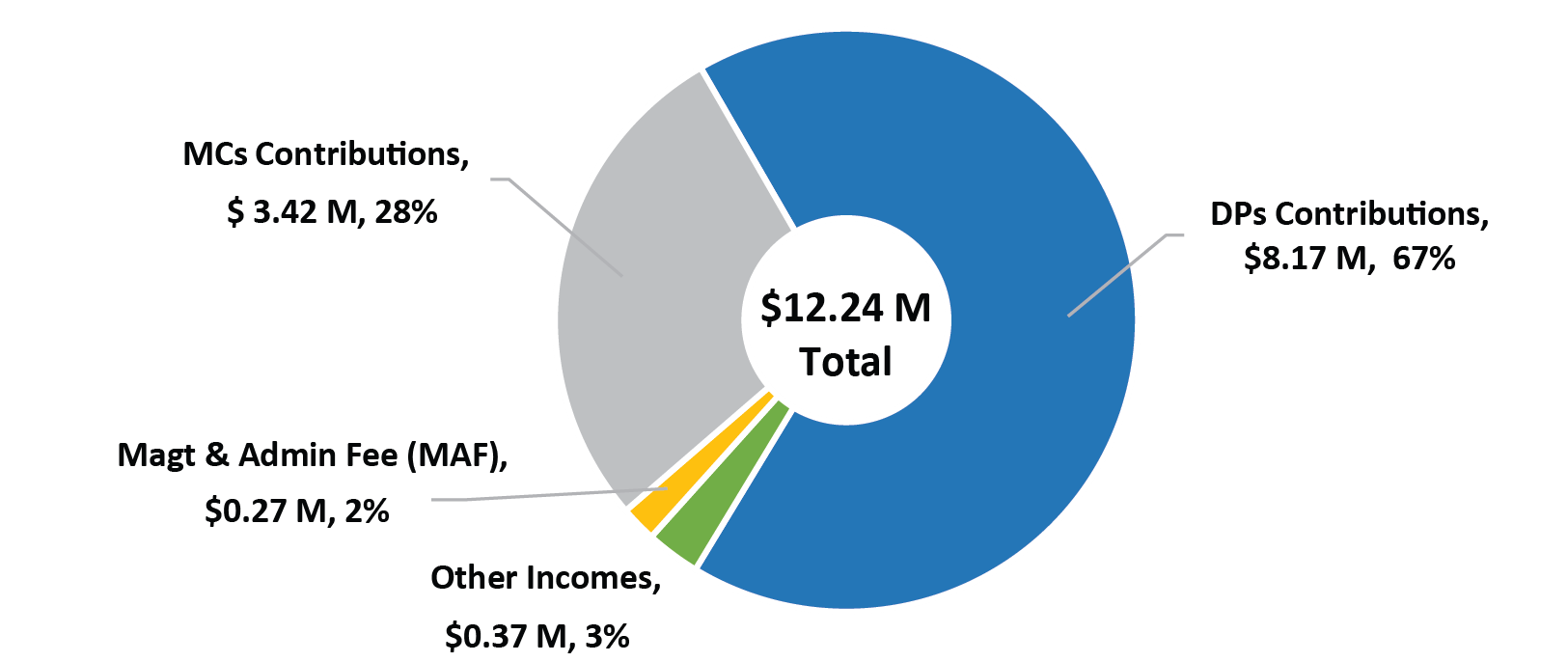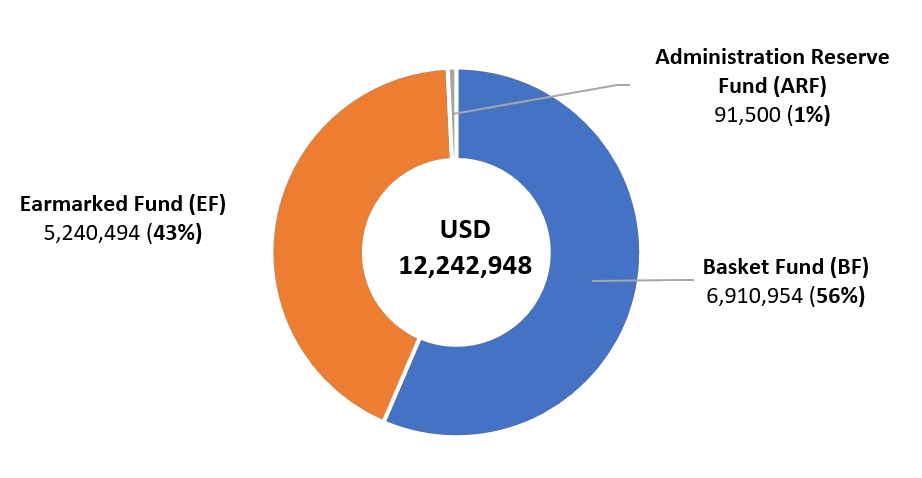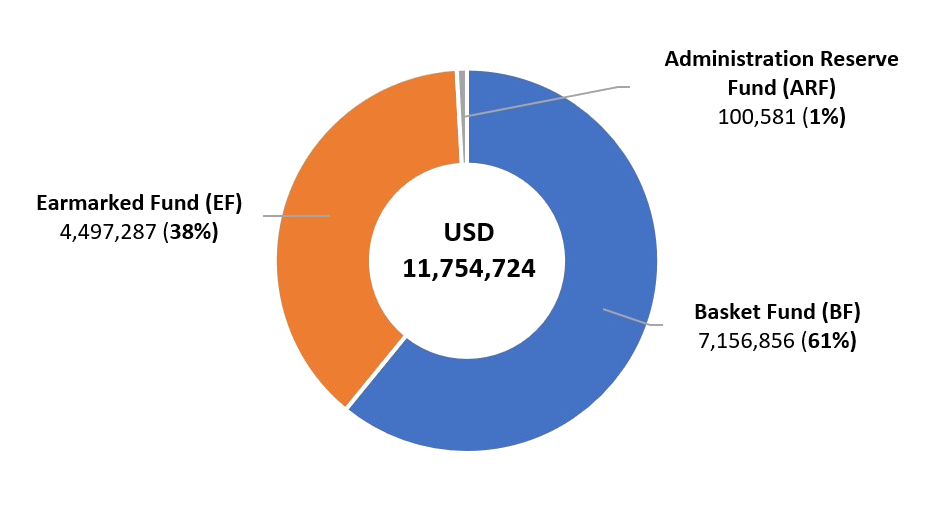FINANCE
Sources of MRC Income in 2019

MRC Income in 2019

MRC Expenditure in 2019

FINANCIAL OVERVIEW IN 2020
2019 was an exciting year, significant fluctuations in income and expenditure against the budget has been recorded.
- MRCS receives income from three primary sources: MRC Member Countries, Development Partners and other sources including interest revenue, management and admin fee (MAF) charged to earmarked contributions and data fees.
- The opening fund balance on 1 January 2019 was US$8,673,272, being carried from the previous year. By 31 December 2019, total income was US$12,242,948, categorising in three fund types: Basket Fund (BF), Earmarked Fund (EF) and Administration Reserve Fund (ARF).
- The total budget (AWP) for 2019 was US$16,568,932. Total expenditure for 2019 was US$11,754,724; the disbursement rate was therefore 71%. The disbursement rate for 2019 would increase to 83% if obligated contracts and cash advances, with the amount of USD 1,915,450, were included. As a result, the movement in fund balance for the year 2019 was US$488,224.
INTERNAL CONTROL AND AUDITING
The MRCS has appropriate financial controls in place, and these operated effectively and reliably during the past year. One of the achievements in enhancing the financial control mechanism was that the MRC Audit Committee has started to perform its role. The primary purpose of the MRCS’s audit committee is to provide oversight of the financial reporting process, the audit process, the MRCS system of internal controls and compliance with laws and regulations.
Moreover, as per MRC Member Countries’ and development partners’ requirements, the new External Auditor Binder Dijker Otte (BDO) has been appointed from 2019 to 2020 to provide Audit & Assurance services to MRCS. The auditor will be working on the financial statement of 2019 in January 2020.
FINANCIAL MANAGEMENT
During the year 2019 the primary focus has been on:
- Improving and updating the operation manu• Improving and updating the operation manuals such as Administration, Procurement, and Finance manuals, which were approved by the MRC Joint Committee in 2019.
- MRCS has been working with all relevant stakeholders to improve the internal controls, which successfully passed the EU Pillar Re-Assessment.
- Preparing and planning for change-over and the reconfiguring the FMIS to support the new strategic plan and current working arrangements and reporting requirements.
- Support the operation of the MRC Audit Committee and internal auditing process.
- Maintaining the accuracy of accounting records.
- Carefully manage cash flow due to the delayed fund transfer from some DPs.